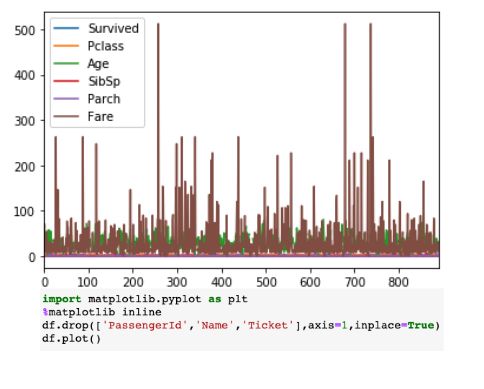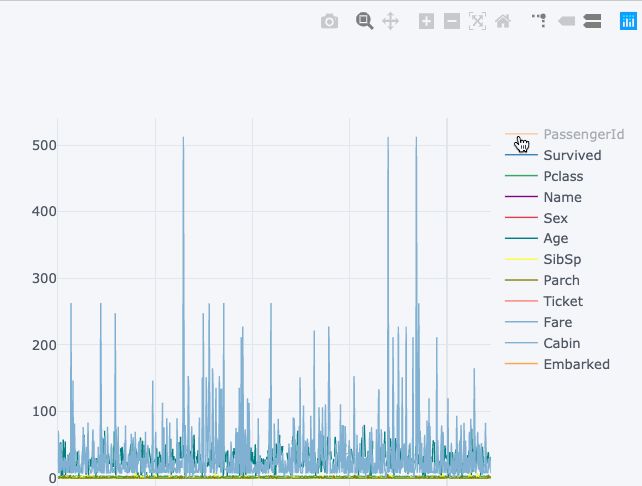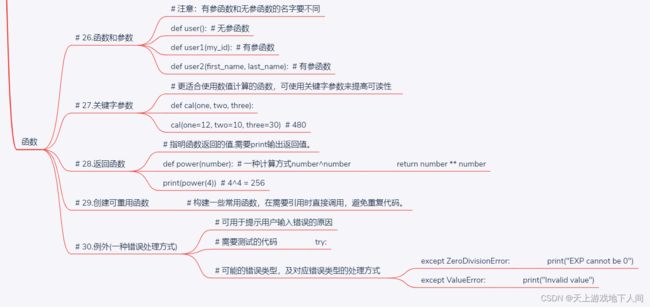- 下完安装好python后,想查看python的安装位置的几种方法
大模型猫叔
python开发语言爬虫
查看python的路径基于windows系统,按下win+r(也就是命令提示符),输入cmd,进入查看当前的python的版本的话输入python-V1,查看当前下载的python类型和路径则可以输入py-0(加*的是你使用python的默认版本)2,还可以使用命令wherepython查看路径(这样就不会显示你python默认使用的是哪个)小技巧:如果想清除命令行的话可以输入命令cls然后ent
- Python爬虫实战:如何爬取雪球网的股票数据
Python爬虫项目
2025年爬虫实战项目python爬虫开发语言自动化区块链
引言雪球网(Xueqiu)是中国知名的股票投资社交平台,它提供了丰富的股票数据、投资者的评论和分析,并允许用户进行股票交易的模拟。雪球平台集成了大量的股市数据,包括个股的实时行情、财务数据、投资者分析以及论坛社区内容。许多投资者和金融分析师都在该平台上进行股票研究、讨论和数据挖掘。在本文中,我们将介绍如何通过Python爬虫抓取雪球网的股票数据。通过分析雪球网提供的API和网页结构,获取个股的实时
- Python 爬虫实战:爬取雪球股票讨论(投资者情绪分析 + 热点板块追踪)
Python核芯
Python爬虫实战项目python爬虫开发语言
一、前言雪球网作为国内知名的投资者社区,汇聚了海量的股票讨论、行情数据和用户观点。通过爬取雪球股票讨论数据,我们可以挖掘投资者情绪和热点板块,为投资决策提供数据支持。本文将详细讲解如何利用Python爬虫抓取雪球股票讨论数据,并进行投资者情绪分析和热点板块追踪。二、准备工作1.环境搭建确保已安装Python3.7或以上版本,推荐使用VisualStudioCode作为开发工具。2.安装依赖库在命令
- Python内置模块之asyncio详细功能介绍及示例
Pythonasyncio模块详解及使用示例asyncio是Python用于编写并发代码的库,使用async/await语法。它是Python异步编程的核心库,特别适合I/O密集型和高并发网络应用。主要方法及功能1.事件循环管理asyncio.run(coro,*,debug=False)-运行异步程序的主入口asyncio.get_event_loop()-获取当前事件循环asyncio.set
- Python 并发编程:同步原语精要指南
Yant224
python#并发编程python同步原语并发控制线程安全Python锁机制互斥锁信号量
一、同步原语的核心价值在多线程/多进程环境中,当多个执行单元访问共享资源时,同步原语提供了控制访问顺序和协调执行的机制,防止竞争条件和数据不一致问题。并发问题数据竞争死锁资源饥饿同步原语互斥访问执行协调顺序控制锁/Lock事件/Event屏障/Barrier二、关键同步机制详解1.互斥锁(Lock)核心功能:确保同一时刻只有一个线程访问共享资源
- ReBEL模型的本地部署与运行,用于三元组抽取任务(事件抽取、知识抽取)
1.服务器CUDA11.72.依赖condacreate-nrebel_envpython=3.10-ycondaactivaterebel_env#安装PyTorch(建议与CUDA11.7配合)pipinstalltorchtorchvisiontorchaudio--index-urlhttps://download.pytorch.org/whl/cu117#安装Transformers和
- 全平台QQ聊天数据库解密项目常见问题解决方案
管旭韶
全平台QQ聊天数据库解密项目常见问题解决方案qq-win-db-keyQQNT/WindowsQQ聊天数据库解密项目地址:https://gitcode.com/gh_mirrors/qq/qq-win-db-key项目基础介绍本项目是一个开源项目,旨在为用户提供全平台QQ聊天数据库的解密方法。项目主要使用Python、JavaScript和C++等编程语言实现。新手常见问题及解决步骤问题一:如何
- 用鸿蒙打造真正的跨设备数据库:从零实现分布式存储
网罗开发
HarmonyOS实战源码实战harmonyos数据库分布式
网罗开发(小红书、快手、视频号同名) 大家好,我是展菲,目前在上市企业从事人工智能项目研发管理工作,平时热衷于分享各种编程领域的软硬技能知识以及前沿技术,包括iOS、前端、HarmonyOS、Java、Python等方向。在移动端开发、鸿蒙开发、物联网、嵌入式、云原生、开源等领域有深厚造诣。图书作者:《ESP32-C3物联网工程开发实战》图书作者:《SwiftUI入门,进阶与实战》超级个体:CO
- Python Day58
别勉.
python机器学习python信息可视化数据分析
Task:1.时序建模的流程2.时序任务经典单变量数据集3.ARIMA(p,d,q)模型实战4.SARIMA摘要图的理解5.处理不平稳的2种差分a.n阶差分—处理趋势b.季节性差分—处理季节性建立一个ARIMA模型,通常遵循以下步骤:数据可视化:观察原始时间序列图,判断是否存在趋势或季节性。平稳性检验:对原始序列进行ADF检验。如果p值>0.05,说明序列非平稳,需要进行差分。确定差分次数d:进行
- Python Day56
别勉.
python机器学习python开发语言
Task:1.假设检验基础知识a.原假设与备择假设b.P值、统计量、显著水平、置信区间2.白噪声a.白噪声的定义b.自相关性检验:ACF检验和Ljung-Box检验c.偏自相关性检验:PACF检验3.平稳性a.平稳性的定义b.单位根检验4.季节性检验a.ACF检验b.序列分解:趋势+季节性+残差记忆口诀:p越小,落在置信区间外,越拒绝原假设。1.假设检验基础知识a.原假设与备择假设原假设(Null
- Python Day57
别勉.
python机器学习python开发语言
Task:1.序列数据的处理:a.处理非平稳性:n阶差分b.处理季节性:季节性差分c.自回归性无需处理2.模型的选择a.AR§自回归模型:当前值受到过去p个值的影响b.MA(q)移动平均模型:当前值收到短期冲击的影响,且冲击影响随时间衰减c.ARMA(p,q)自回归滑动平均模型:同时存在自回归和冲击影响时间序列分析:ARIMA/SARIMA模型构建流程时间序列分析的核心目标是理解序列的过去行为,并
- Python Day44
别勉.
python机器学习python开发语言
Task:1.预训练的概念2.常见的分类预训练模型3.图像预训练模型的发展史4.预训练的策略5.预训练代码实战:resnet181.预训练的概念预训练(Pre-training)是指在大规模数据集上,先训练模型以学习通用的特征表示,然后将其用于特定任务的微调。这种方法可以显著提高模型在目标任务上的性能,减少训练时间和所需数据量。核心思想:在大规模、通用的数据(如ImageNet)上训练模型,学习丰
- Python Day42
别勉.
python机器学习python开发语言
Task:Grad-CAM与Hook函数1.回调函数2.lambda函数3.hook函数的模块钩子和张量钩子4.Grad-CAM的示例1.回调函数定义:回调函数是作为参数传入到其他函数中的函数,在特定事件发生时被调用。特点:便于扩展和自定义程序行为。常用于训练过程中的监控、日志记录、模型保存等场景。示例:defcallback_function():print("Epochcompleted!")
- Python-什么是集合
難釋懷
python开发语言数据库
一、前言在Python中,除了我们常用的列表(list)、元组(tuple)和字典(dict),还有一种非常实用的数据结构——集合(set)。集合是一种无序且不重复的元素集合,常用于去重、交并差运算等场景。本文将带你全面了解Python中集合的基本用法、操作方法及其适用场景,并通过大量代码示例帮助你掌握这一重要数据类型。二、什么是集合(set)?✅定义:集合是Python中的一种可变数据类型,它存
- Python Day53
别勉.
python机器学习python开发语言
Task:1.对抗生成网络的思想:关注损失从何而来2.生成器、判别器3.nn.sequential容器:适合于按顺序运算的情况,简化前向传播写法4.leakyReLU介绍:避免relu的神经元失活现象1.对抗生成网络的思想:关注损失从何而来这是理解GANs的关键!传统的神经网络训练中,我们通常会直接定义一个损失函数(如均方误差MSE、交叉熵CE),然后通过反向传播来优化这个损失。这个损失的“来源”
- 〖Python零基础入门篇⑮〗- Python中的字典
哈哥撩编程
#①-零基础入门篇Python全栈白宝书python开发语言后端python中的字典
>【易编橙·终身成长社群,相遇已是上上签!】-点击跳转~<作者:哈哥撩编程(视频号同名)图书作者:程序员职场效能宝典博客专家:全国博客之星第四名超级个体:COC上海社区主理人特约讲师:谷歌亚马逊分享嘉宾科技博主:极星会首批签约作者文章目录⭐️什么是字典?⭐️字典的结构与创建方法⭐️字典支持的数据类型⭐️在列表与元组中如何定义字典
- python换行输出字典_Python基础入门:字符串和字典
weixin_39959236
python换行输出字典
10、字符串常用转义字符转义字符描述\\反斜杠符号\'单引号\"双引号\n换行\t横向制表符(TAB)\r回车三引号允许一个字符串跨多行,字符串中可以包含换行符、制表符以及其他特殊字符para_str="""这是一个多行字符串的实例多行字符串可以使用制表符TAB(\t)。也可以使用换行符[\n]。"""print(para_str)#这是一个多行字符串的实例#多行字符串可以使用制表符#TAB()。
- Python----Python中的集合及其常用方法
redrose2100
Pythonpython开发语言后端
【原文链接】1集合的定义和特点(1)集合是用花括号括起来的,集合的特点是元素没有顺序,元素具有唯一性,不能重复>>>a={1,2,3,4}>>>type(a)>>>a={1,2,3,1,2,3}>>>a{1,2,3}2集合的常用运算(1)集合元素没有顺序,所以不能像列表和元组那样用下标取值>>>a={1,2,3}>>>a[0]Traceback(mostrecentcalllast):File""
- langchain+langserver+langfuse整合streamlit构建基础智能体中心
Messi^
人工智能-大模型应用langchain人工智能
ServerApi******#!/usr/bin/python--coding:UTF-8--importuvicornfromfastapiimportFastAPIfrombaseimportFaissEnginefromlangserve.serverimportadd_routesfromlangchain_core.promptsimportPromptTemplatefromlang
- pycharm两种运行py之路径问题
hellopbc
software#pycharmpythonpycahrmpath
文章目录pycharm两种运行py之路径问题pycharm两种运行py之路径问题运行python代码在pycharm中有两种方式:一种是直接鼠标点击runxxx运行,还有一种是使用#In[]:点击该行左边的绿色三角形按钮运行有可能在pythonconsole窗口运行有可能在你当前运行文件的窗口(就是run之后产生的那个窗口)**问题:**你会发现,涉及到路径问题时(使用相对路径),可能在这两种运行
- Python元组的遍历
難釋懷
python前端linux
一、前言在Python中,元组(tuple)是一种非常基础且常用的数据结构,它与列表类似,都是有序的序列,但不同的是,元组是不可变的(immutable),一旦创建就不能修改。虽然元组不能被修改,但它支持高效的遍历操作,非常适合用于存储不会变化的数据集合。本文将系统性地介绍Python中元组的多种遍历方式,包括基本遍历、索引访问、元素解包、结合函数等,并结合大量代码示例帮助你掌握这一重要技能。二、
- Python集合生成式
一、前言在Python中,我们已经熟悉了列表生成式(ListComprehension),它为我们提供了一种简洁高效的方式来创建列表。而除了列表之外,Python还支持一种类似的语法结构来创建集合——集合生成式(SetComprehension)。集合生成式不仅可以帮助我们快速构造一个无序且不重复的集合,还能有效提升代码的可读性和执行效率。本文将带你全面了解:✅什么是集合生成式✅集合生成式的语法结
- Python开发从新手到专家:第三章 列表、元组和集合
caifox菜狐狸
Python开发从新手到专家python元素集合列表元组数据结构字典
在Python开发的旅程中,数据结构是每一位开发者必须掌握的核心知识。它们是构建程序的基石,决定了代码的效率、可读性和可维护性。本章将深入探讨Python中的三种基本数据结构:列表、元组和集合。这三种数据结构在实际开发中有着广泛的应用,从简单的数据存储到复杂的算法实现,它们都扮演着不可或缺的角色。无论你是刚刚接触Python的新手,还是希望进一步提升编程技能的开发者,本章都将是你的宝贵指南。我们将
- python入门之字典
二十四桥_
python入门python
文章目录一、字典定义二、字典插入三、字典删除四、字典修改五、字典查找六、字典遍历七、字典拆包一、字典定义#{}键值对各个键值对之间用逗号隔开#1.有数据的字典dict1={'name':'zmz','age':20,'gender':'boy'}print(dict1)#2.创建空字典dict2={}print(dict2)dict3=dict()print(dict3)二、字典插入dict1={
- python类的定义与使用
菜鸟驿站2020
python
class01.py代码如下classTicket():#类的名称首字母大写#在类里定义的变量称为属性,第一个属性必须是selfdef__init__(self,checi,fstation,tstation,fdate,ftime,ttime,notes):self.checi=checiself.fstation=fstationself.tstation=tstationself.fdate
- Python爬虫设置代理IP
菜鸟驿站2020
python
配置代理ipfrombs4importBeautifulSoupimportrequestsimportrandom#从ip代理网站获取ip列表defget_ip_list(url,headers):web_data=requests.get(url,headers=headers)soup=BeautifulSoup(web_data.text,'lxml')ips=soup.find_all(
- Tensorflow 回归模型 FLASK + DOCKER 部署 至 Ubuntu 虚拟机
准备工作:安装虚拟机,安装ubuntu,安装python3.x、pip和对应版本的tensorflow和其他库文件,安装docker。注意事项:1.windows系统运行的模型文件不能直接运行到虚拟机上,需在虚拟机上重新运行并生成模型文件2.虚拟机网络状态改为桥接Flask代码如下:fromflaskimportFlask,request,jsonifyimportpickleimportnump
- 10个可以快速用Python进行数据分析的小技巧_python 通径分析
2401_86043917
python数据分析开发语言
df.iplot()df.iplot()vsdf.plot()右侧的可视
- 【Python多线程】
晟翰逸闻
Pythonpython
文章目录前言一、Python等待event.set二、pythonracecondition和lock使用使用锁(Lock)三.pythonDeadLock使用等综合运用总结前言这篇技术文章讨论了多线程编程中的几个重要概念。它首先介绍了等待事件的使用,并强调了避免使用“ForLoop&Sleep”进行等待的重要性。接着,文档解释了竞态条件,并提供了处理共享资源的建议,即在使用共享资源时进行加锁和解
- 【pycharm专业版】【如何远程配置Python解释器】【SSH】
资源存储库
pythonpycharm
Wejustlookedatconfiguringalocalinterpreter.Butwedon’talwayshavea“local”environment.Sometimes–andincreasinglyoften–ourenvironmentisoverthere.我们刚刚看了配置本地解释器。但我们并不总是有一个“本地”的环境。有时候–而且越来越多的时候–我们的环境就在那里。Let’
- 多线程编程之卫生间
周凡杨
java并发卫生间线程厕所
如大家所知,火车上车厢的卫生间很小,每次只能容纳一个人,一个车厢只有一个卫生间,这个卫生间会被多个人同时使用,在实际使用时,当一个人进入卫生间时则会把卫生间锁上,等出来时打开门,下一个人进去把门锁上,如果有一个人在卫生间内部则别人的人发现门是锁的则只能在外面等待。问题分析:首先问题中有两个实体,一个是人,一个是厕所,所以设计程序时就可以设计两个类。人是多数的,厕所只有一个(暂且模拟的是一个车厢)。
- How to Install GUI to Centos Minimal
sunjing
linuxInstallDesktopGUI
http://www.namhuy.net/475/how-to-install-gui-to-centos-minimal.html
I have centos 6.3 minimal running as web server. I’m looking to install gui to my server to vnc to my server. You can insta
- Shell 函数
daizj
shell函数
Shell 函数
linux shell 可以用户定义函数,然后在shell脚本中可以随便调用。
shell中函数的定义格式如下:
[function] funname [()]{
action;
[return int;]
}
说明:
1、可以带function fun() 定义,也可以直接fun() 定义,不带任何参数。
2、参数返回
- Linux服务器新手操作之一
周凡杨
Linux 简单 操作
1.whoami
当一个用户登录Linux系统之后,也许他想知道自己是发哪个用户登录的。
此时可以使用whoami命令。
[ecuser@HA5-DZ05 ~]$ whoami
e
- 浅谈Socket通信(一)
朱辉辉33
socket
在java中ServerSocket用于服务器端,用来监听端口。通过服务器监听,客户端发送请求,双方建立链接后才能通信。当服务器和客户端建立链接后,两边都会产生一个Socket实例,我们可以通过操作Socket来建立通信。
首先我建立一个ServerSocket对象。当然要导入java.net.ServerSocket包
ServerSock
- 关于框架的简单认识
西蜀石兰
框架
入职两个月多,依然是一个不会写代码的小白,每天的工作就是看代码,写wiki。
前端接触CSS、HTML、JS等语言,一直在用的CS模型,自然免不了数据库的链接及使用,真心涉及框架,项目中用到的BootStrap算一个吧,哦,JQuery只能算半个框架吧,我更觉得它是另外一种语言。
后台一直是纯Java代码,涉及的框架是Quzrtz和log4j。
都说学前端的要知道三大框架,目前node.
- You have an error in your SQL syntax; check the manual that corresponds to your
林鹤霄
You have an error in your SQL syntax; check the manual that corresponds to your MySQL server version for the right syntax to use near 'option,changed_ids ) values('0ac91f167f754c8cbac00e9e3dc372
- MySQL5.6的my.ini配置
aigo
mysql
注意:以下配置的服务器硬件是:8核16G内存
[client]
port=3306
[mysql]
default-character-set=utf8
[mysqld]
port=3306
basedir=D:/mysql-5.6.21-win
- mysql 全文模糊查找 便捷解决方案
alxw4616
mysql
mysql 全文模糊查找 便捷解决方案
2013/6/14 by 半仙
[email protected]
目的: 项目需求实现模糊查找.
原则: 查询不能超过 1秒.
问题: 目标表中有超过1千万条记录. 使用like '%str%' 进行模糊查询无法达到性能需求.
解决方案: 使用mysql全文索引.
1.全文索引 : MySQL支持全文索引和搜索功能。MySQL中的全文索
- 自定义数据结构 链表(单项 ,双向,环形)
百合不是茶
单项链表双向链表
链表与动态数组的实现方式差不多, 数组适合快速删除某个元素 链表则可以快速的保存数组并且可以是不连续的
单项链表;数据从第一个指向最后一个
实现代码:
//定义动态链表
clas
- threadLocal实例
bijian1013
javathreadjava多线程threadLocal
实例1:
package com.bijian.thread;
public class MyThread extends Thread {
private static ThreadLocal tl = new ThreadLocal() {
protected synchronized Object initialValue() {
return new Inte
- activemq安全设置—设置admin的用户名和密码
bijian1013
javaactivemq
ActiveMQ使用的是jetty服务器, 打开conf/jetty.xml文件,找到
<bean id="adminSecurityConstraint" class="org.eclipse.jetty.util.security.Constraint">
<p
- 【Java范型一】Java范型详解之范型集合和自定义范型类
bit1129
java
本文详细介绍Java的范型,写一篇关于范型的博客原因有两个,前几天要写个范型方法(返回值根据传入的类型而定),竟然想了半天,最后还是从网上找了个范型方法的写法;再者,前一段时间在看Gson, Gson这个JSON包的精华就在于对范型的优雅简单的处理,看它的源代码就比较迷糊,只其然不知其所以然。所以,还是花点时间系统的整理总结下范型吧。
范型内容
范型集合类
范型类
- 【HBase十二】HFile存储的是一个列族的数据
bit1129
hbase
在HBase中,每个HFile存储的是一个表中一个列族的数据,也就是说,当一个表中有多个列簇时,针对每个列簇插入数据,最后产生的数据是多个HFile,每个对应一个列族,通过如下操作验证
1. 建立一个有两个列族的表
create 'members','colfam1','colfam2'
2. 在members表中的colfam1中插入50*5
- Nginx 官方一个配置实例
ronin47
nginx 配置实例
user www www;
worker_processes 5;
error_log logs/error.log;
pid logs/nginx.pid;
worker_rlimit_nofile 8192;
events {
worker_connections 4096;}
http {
include conf/mim
- java-15.输入一颗二元查找树,将该树转换为它的镜像, 即在转换后的二元查找树中,左子树的结点都大于右子树的结点。 用递归和循环
bylijinnan
java
//use recursion
public static void mirrorHelp1(Node node){
if(node==null)return;
swapChild(node);
mirrorHelp1(node.getLeft());
mirrorHelp1(node.getRight());
}
//use no recursion bu
- 返回null还是empty
bylijinnan
javaapachespring编程
第一个问题,函数是应当返回null还是长度为0的数组(或集合)?
第二个问题,函数输入参数不当时,是异常还是返回null?
先看第一个问题
有两个约定我觉得应当遵守:
1.返回零长度的数组或集合而不是null(详见《Effective Java》)
理由就是,如果返回empty,就可以少了很多not-null判断:
List<Person> list
- [科技与项目]工作流厂商的战略机遇期
comsci
工作流
在新的战略平衡形成之前,这里有一个短暂的战略机遇期,只有大概最短6年,最长14年的时间,这段时间就好像我们森林里面的小动物,在秋天中,必须抓紧一切时间存储坚果一样,否则无法熬过漫长的冬季。。。。
在微软,甲骨文,谷歌,IBM,SONY
- 过度设计-举例
cuityang
过度设计
过度设计,需要更多设计时间和测试成本,如无必要,还是尽量简洁一些好。
未来的事情,比如 访问量,比如数据库的容量,比如是否需要改成分布式 都是无法预料的
再举一个例子,对闰年的判断逻辑:
1、 if($Year%4==0) return True; else return Fasle;
2、if ( ($Year%4==0 &am
- java进阶,《Java性能优化权威指南》试读
darkblue086
java性能优化
记得当年随意读了微软出版社的.NET 2.0应用程序调试,才发现调试器如此强大,应用程序开发调试其实真的简单了很多,不仅仅是因为里面介绍了很多调试器工具的使用,更是因为里面寻找问题并重现问题的思想让我震撼,时隔多年,Java已经如日中天,成为许多大型企业应用的首选,而今天,这本《Java性能优化权威指南》让我再次找到了这种感觉,从不经意的开发过程让我刮目相看,原来性能调优不是简单地看看热点在哪里,
- 网络学习笔记初识OSI七层模型与TCP协议
dcj3sjt126com
学习笔记
协议:在计算机网络中通信各方面所达成的、共同遵守和执行的一系列约定 计算机网络的体系结构:计算机网络的层次结构和各层协议的集合。 两类服务: 面向连接的服务通信双方在通信之前先建立某种状态,并在通信过程中维持这种状态的变化,同时为服务对象预先分配一定的资源。这种服务叫做面向连接的服务。 面向无连接的服务通信双方在通信前后不建立和维持状态,不为服务对象
- mac中用命令行运行mysql
dcj3sjt126com
mysqllinuxmac
参考这篇博客:http://www.cnblogs.com/macro-cheng/archive/2011/10/25/mysql-001.html 感觉workbench不好用(有点先入为主了)。
1,安装mysql
在mysql的官方网站下载 mysql 5.5.23 http://www.mysql.com/downloads/mysql/,根据我的机器的配置情况选择了64
- MongDB查询(1)——基本查询[五]
eksliang
mongodbmongodb 查询mongodb find
MongDB查询
转载请出自出处:http://eksliang.iteye.com/blog/2174452 一、find简介
MongoDB中使用find来进行查询。
API:如下
function ( query , fields , limit , skip, batchSize, options ){.....}
参数含义:
query:查询参数
fie
- base64,加密解密 经融加密,对接
y806839048
经融加密对接
String data0 = new String(Base64.encode(bo.getPaymentResult().getBytes(("GBK"))));
String data1 = new String(Base64.decode(data0.toCharArray()),"GBK");
// 注意编码格式,注意用于加密,解密的要是同
- JavaWeb之JSP概述
ihuning
javaweb
什么是JSP?为什么使用JSP?
JSP表示Java Server Page,即嵌有Java代码的HTML页面。使用JSP是因为在HTML中嵌入Java代码比在Java代码中拼接字符串更容易、更方便和更高效。
JSP起源
在很多动态网页中,绝大部分内容都是固定不变的,只有局部内容需要动态产生和改变。
如果使用Servl
- apple watch 指南
啸笑天
apple
1. 文档
WatchKit Programming Guide(中译在线版 By @CocoaChina) 译文 译者 原文 概览 - 开始为 Apple Watch 进行开发 @星夜暮晨 Overview - Developing for Apple Watch 概览 - 配置 Xcode 项目 - Overview - Configuring Yo
- java经典的基础题目
macroli
java编程
1.列举出 10个JAVA语言的优势 a:免费,开源,跨平台(平台独立性),简单易用,功能完善,面向对象,健壮性,多线程,结构中立,企业应用的成熟平台, 无线应用 2.列举出JAVA中10个面向对象编程的术语 a:包,类,接口,对象,属性,方法,构造器,继承,封装,多态,抽象,范型 3.列举出JAVA中6个比较常用的包 Java.lang;java.util;java.io;java.sql;ja
- 你所不知道神奇的js replace正则表达式
qiaolevip
每天进步一点点学习永无止境纵观千象regex
var v = 'C9CFBAA3CAD0';
console.log(v);
var arr = v.split('');
for (var i = 0; i < arr.length; i ++) {
if (i % 2 == 0) arr[i] = '%' + arr[i];
}
console.log(arr.join(''));
console.log(v.r
- [一起学Hive]之十五-分析Hive表和分区的统计信息(Statistics)
superlxw1234
hivehive分析表hive统计信息hive Statistics
关键字:Hive统计信息、分析Hive表、Hive Statistics
类似于Oracle的分析表,Hive中也提供了分析表和分区的功能,通过自动和手动分析Hive表,将Hive表的一些统计信息存储到元数据中。
表和分区的统计信息主要包括:行数、文件数、原始数据大小、所占存储大小、最后一次操作时间等;
14.1 新表的统计信息
对于一个新创建
- Spring Boot 1.2.5 发布
wiselyman
spring boot
Spring Boot 1.2.5已在7月2日发布,现在可以从spring的maven库和maven中心库下载。
这个版本是一个维护的发布版,主要是一些修复以及将Spring的依赖提升至4.1.7(包含重要的安全修复)。
官方建议所有的Spring Boot用户升级这个版本。
项目首页 | 源
